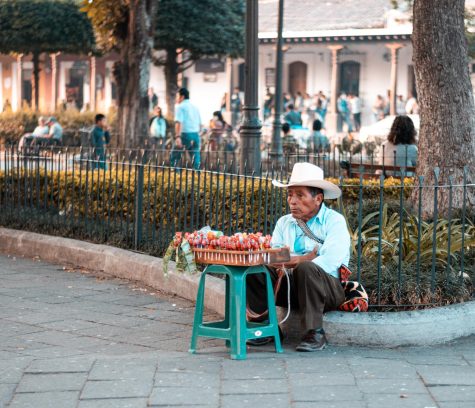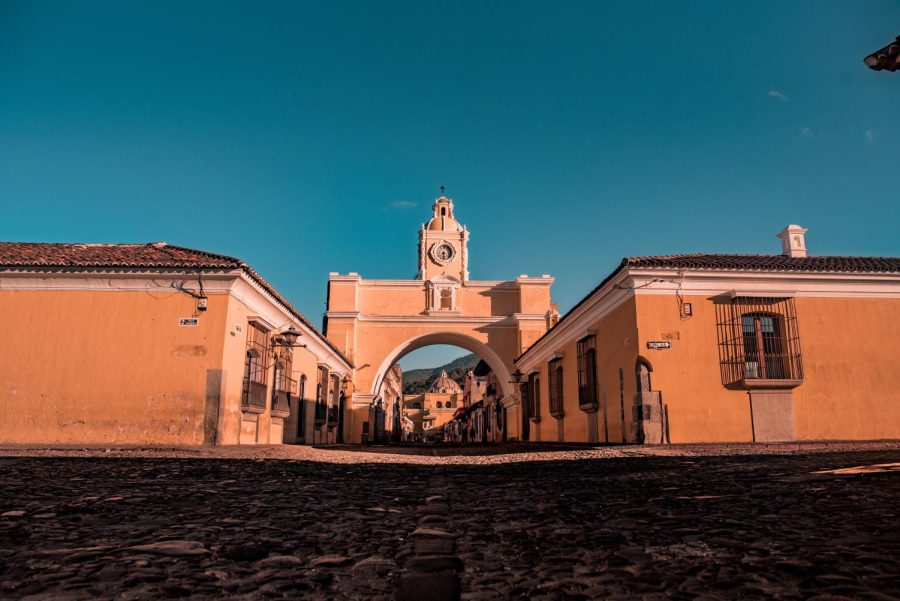A deeper look at Guatemala!
Have you ever wanted to visit Guatemala? Read below for a run down on Guatemalan culture, politics, and society.
Photo by Manuel Asturias on Unsplash
Calle del Arco is a landmark in Guatemala!

Guatemala is a very diverse country defined by the many small agricultural towns and villages, as well as, larger more prosperous cities. Like most countries, Guatemala is divided by socioeconomic factors and an uneven spread of wealth however, the country is unified in many way through culture, politics, and its society as a whole.
According to Anywhere.com, Guatemalan culture varies from its cities to villages however, the country shares similarities in language, religion, and customs, that are heavily steeped in both Mayan and Spanish influence. Spanish is the official language however, the history of the country supports 22 indigenous languages that are still spoken among its people. While most people rely on Spanish and Guatemalan schools primarily teach students using Spanish, three Mayan languages, K’iche’, Q’eqchi’ and Kaqchikel are spoken by several million people in the country. As with many countries, English is considered a second language of Guatemala with approximately 50% of people fluent in English.
The constitution in Guatemala guarantees religious freedom for the people with fifty percent of people being devout Catholics and another thirty percent being Protestant. In an article at Hachettebookgroup.com about religion in Guatamala, Mayan spirituality still has a large presence in the country with many residents preserving great respect for Mayan temples. To this day, rituals known as “costumbre” are practiced to honor rivers, caves and the Guatemalan highlands. These are practiced by indigenous people and may include offerings of candles, flowers, liquors and occasionally live animal sacrifice.
Britannica.com tells us that most Guatemalans celebrate in many ways with festivals throughout the country. Most notably, Semana Santa (or Holy Week) is celebrated at Easter, as well as National Independence Day on September 15. Fireworks, dancing, parades, soccer matches, and cockfighting are very common customs for these celebrations, as well as indigenous art festivals and the wearing of traditional brightly colored clothing throughout cities and small towns alike. Giant kites are flown in cemeteries on November 1, All Saints Day, and traditional foods made from local fish are consumed throughout the entire country. Horse races also marks this day in more rural areas. Guatemala City pays particular homage on August 15, for The Feast of the Assumption of the Virgin Mary. Guatemala is famous for a lot of good food and their national food is Pepian.

Politics in Guatemala can be defined as a stable democracy as a president and vice president are elected for a single four-year term. The Congress de la Republica is the national legislative body with congress member also serving four-year terms. The president is both the head-of-state and the government, and a multi-party system. Executive power is exercised by the government. While the political system is considered stable, the political parties in the country are considered new and not particularly stable as the presidency passes between parties at from election to election.
Society in Guatemala is quite diverse with a large percentage of people being working class. There is also a very marked division between societal classes throughout the nation due to high populations in the more affluent cities as compared to the less affluent agricultural areas. For instance, the capital city of Guatemala City is home to almost 3,000,000 people while still there are an abundant amount of small towns and villages that are home to masses of people.
It is evident that many poor are of Mayan decent so therefore societal division is linked to race and most of the country live in poverty. Although this division is clear, city or village, Guatemalan society is extremely invested in the same idea that family and groups are put on a pedestal above individuality. It is common for extended families to live together or next to one another. The father place as the head of the family while the mother is the core, is still a highly respected idea. Although Guatemala has many of the same characteristics of America, there are vast differences between the cultures and societies.




